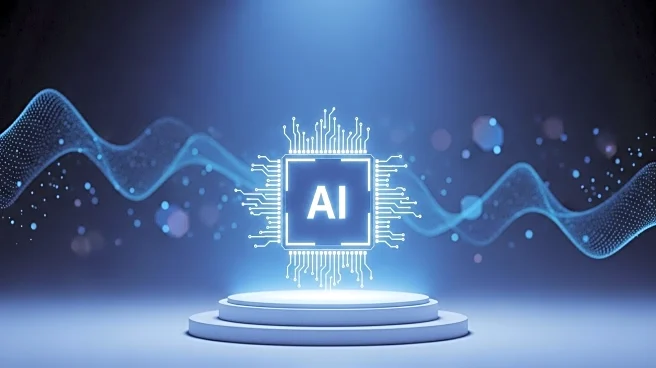What is the story about?
What's Happening?
HR leaders are facing challenges in effectively integrating generative AI (GenAI) into the workplace, as most strategies currently benefit only the confident few. According to a study by Degreed and Harvard Business Publishing, confidence rather than technical skill is the strongest predictor of success with GenAI. Employees who are 'very confident' with AI are significantly more likely to use it daily, apply it to real problems, and engage creatively with the technology. However, those lacking confidence tend to avoid GenAI, leading to a widening gap in performance and opportunity. Traditional training methods, such as workshops and resource publications, often fail to build the necessary confidence, which requires psychological safety, adaptive practice, and real-time feedback loops.
Why It's Important?
The integration of GenAI into the workplace is crucial for maintaining competitive advantage and operational efficiency. As AI technology continues to evolve, organizations that fail to address the confidence gap may experience a divide in workforce performance and innovation. Confident employees are more likely to leverage AI for transformative applications, enhancing productivity and problem-solving capabilities. Conversely, a lack of confidence can hinder the adoption of AI, limiting its potential benefits. By fostering confidence through targeted training and support, organizations can ensure that their workforce is prepared to thrive in an AI-infused environment, ultimately driving business success and employee satisfaction.
What's Next?
Organizations are encouraged to implement strategies that build confidence in AI usage among employees. This includes creating low-stakes entry points for AI tasks, investing in adaptive learning experiences, and measuring readiness by tracking confidence levels across various roles and demographics. By tailoring interventions to close confidence gaps, businesses can enhance their workforce's ability to effectively utilize AI. As the next wave of AI-driven return on investment focuses on readiness rather than efficiency, leaders must prioritize building a confident workforce to fully capitalize on AI's potential.
Beyond the Headlines
The shift towards confidence-based AI training highlights broader implications for workplace culture and leadership. Developing psychological safety and adaptive learning environments not only supports AI integration but also fosters a culture of innovation and resilience. As confidence becomes a key currency in the AI era, leaders must recognize its value and actively cultivate it within their teams. This approach can lead to long-term benefits, including increased employee engagement, retention, and overall organizational agility.

















